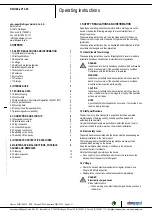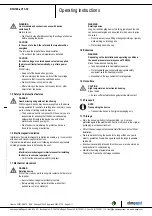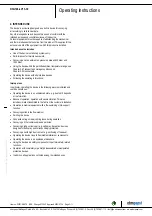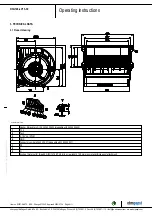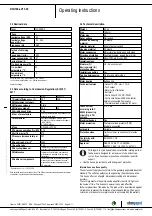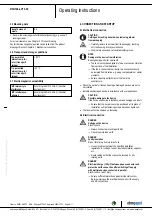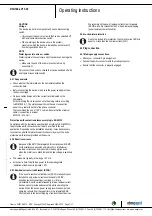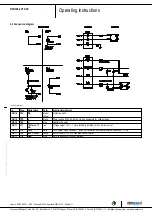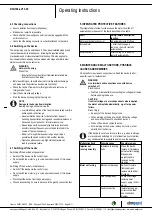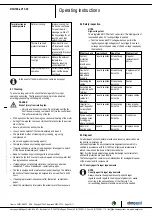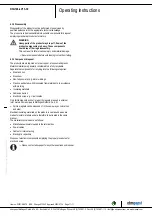
Operating instructions
D3G146-LV13-30
Translation of the original operating instructions
CAUTION
Voltage
The device is a built-in component and has no disconnecting
switch.
→ Only connect the device to circuits that can be switched off
with an all-pole disconnection switch.
→ When working on the device, secure the system/
machine in which the device is installed so as to prevent it
from being switched back on.
NOTE
Water ingress into wires or cables
Water ingress at the customer end of the cable can damage the
device.
→ Make sure the end of the cable is connected in a dry
environment.
Only connect the device to circuits that can be switched off with
an all-pole disconnection switch.
4.2.1 Requirements
;
Check whether the information on the nameplate matches the
connection data.
;
Before connecting the device, make sure the power supply matches
the device voltage.
;
Only use cables designed for the current level indicated on the
nameplate.
For determining the cross-section, note the sizing criteria according
to EN 61800-5-1. The protective earth must have a cross-section
equal to or greater than that of the phase conductor.
We recommend the use of 105 °C cables. Ensure that the minimum
cable cross-section is at least
AWG 26 / 0.13 mm².
Protective earth contact resistance according to EN 60335
Compliance with the resistance specifications according to EN 60335 for
the protective earth connection circuit must be verified in the end
application. Depending on the installation situation, it may be necessary
to connect an additional protective earth conductor by way of the extra
protective earth terminal provided on the device.
4.2.2 Reactive currents
Because of the EMC filter integrated for compliance with EMC
limits (interference emission and immunity to interference),
reactive currents can be measured in the supply line even
when the motor is at a standstill and the line voltage is switched
on.
●
The values are typically in the range < 50 mA
●
At the same time, the effective power in this operating state
(operational readiness) is typically < 2 W.
4.2.3 Residual current circuit breaker (RCCB)
If the use of a residual current device (RCD) is required in your
installation, only pulse-current sensitive and/or AC/DC-
sensitive residual current devices (type A or B) are
permissible. As with variable frequency drives, residual current
devices cannot provide personal safety while operating the
device. When the device power supply is switched on, pulsed
charging currents from the capacitors in the integrated EMC
filter can lead to the instant tripping of residual current devices.
We recommend the use of residual current circuit breakers
(RCCB) with a trip threshold of 300 mA and delayed tripping
(super-resistant, characteristic K).
4.2.4 Locked-rotor protection
Due to the locked-rotor protection, the starting current (LRA) is
equal to or less than the nominal current (FLA).
4.3 Plug connection
4.3.1 Making supply connections
;
Check your connector's pin assignment.
;
Connect the built-in connector with the mating connector.
;
Ensure that the connector is properly engaged.
Item no. 53671-5-9970 · ENU · Change 213540 · Approved 2020-07-14 · Page 7 / 11
ebm-papst Mulfingen GmbH & Co. KG · Bachmühle 2 · D-74673 Mulfingen · Phone +49 (0) 7938 81-0 · Fax +49 (0) 7938 81-110 · [email protected] · www.ebmpapst.com

